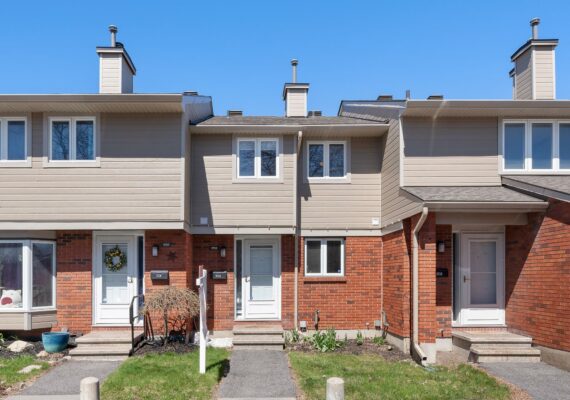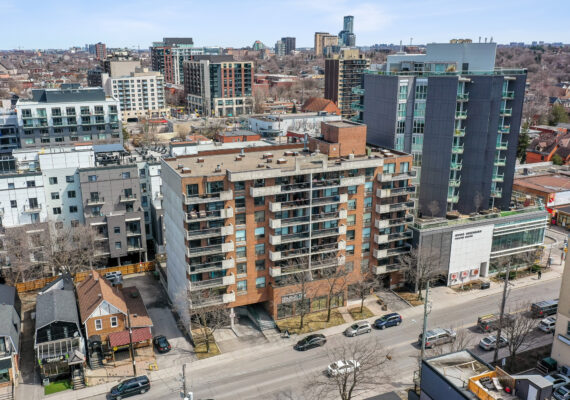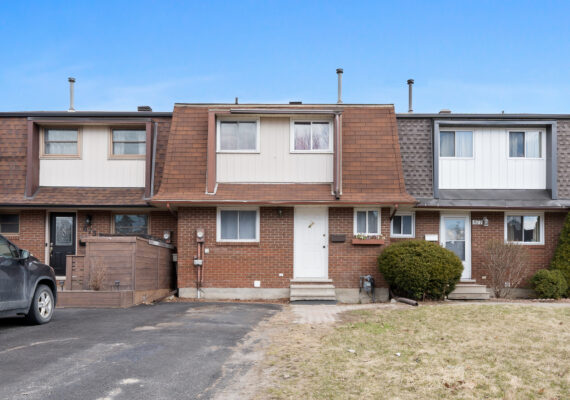
Exceptionally strong regional market, Ottawa, where the benchmark price for single-family homes surged by 22% year-over-year to 593,000. The Ottawa real estate district encompasses a large area, about five times Ottawa itself. It includes the downtown and suburban areas, as well as a number of rural areas.
While every area in the Ottawa real estate district saw increases this past year, not all areas increased at the same rate. There are still many affordable options in the outer areas of the city. Canadians are starting to re-think city living in favour of more space and larger properties. Many buyers are coming from bigger urban centres like Toronto to secure properties in and around the capital. Ottawa’s luxury market is seeing the best performance overall, with buyers looking to scale up where they can.
Near the end of 2020, Ottawa real estate prices were up 19.2% year over year for both condo sales and freehold sales. This rather high increase is reflective of a strong recovery after the initial hall in March. Ottawa is the home to a high number of government and technology sector workers who have been able to weather the pandemic relatively unscathed. This market is expected to continue along its current upward trajectory.
In 2019, 35 % of properties purchased were sold at or below $400K, while in 2020, it was only 16% of homes. The market certainly is exhibiting a major shift in terms of availability in lower price ranges. The total number residential and condo units sold throughout 2020 was 18,971, compared with 18,613 in 2019, increasing by 2%. In the residential dwelling category, unit sales went up 3%, with 14,455 properties exchanging hands last year compared to 14,030 in 2019. In the condominium residential category, sales decreased slightly by 1.5%, with 4,516 units sold in 2020 versus 4,583 in the previous year.
Going forward we fully expect Ottawa’s resale market to continue to rebust in 2021. There are no indicators to suggest that this is an overheated market- it is simply insulated, active and very strong.
What’s in store for the 2021 housing markets?
In the end, the rollercoaster that was 2020 left Canada’s housing market more or less where it began in the year, dull of bidding wars, escalating prices and buyers unable to find a home they can afford, which will continue in 2021. We see little that will stop activity or prices from reaching new heights in the year ahead.
We project price trends to stay firm in most regions of the province, taking property values up by single digits in larger urban centres such as Ottawa & Toronto and double digits in smaller urban centres such as Durham and Simcoe County.
Low available supply is the reason property values will continue to go up. Strong demand pre-pandemic and the historic market rally since the summer have been cleaned up inventories in many parts of the province and in the country. Relative to the 10-year average, active listings had plummeted 50% and 61% in Ontario, despite a surge in condo listings.
We think it will be easier for first-time homebuyers to get into the market in 2021. First-time homebuyers have a limited opportunity to enter the housing market, but not the single family detached market; it will almost certainly be in the urban condo market. Condos will soften for the first half of the year, but they will stabilize in the second half. In other words the time to act is now.
Timing is key, as the 2020 spring lockdown taught us, minimal market activity created an opportunity that few took advantage of, and by summer, when Canadians adjusted to the new pandemic normal, the market resumed to barnburner status. The wild card in 2021 is the COVID-19 vaccine. How quickly it’s distributed and, of course its efficacy will affect what happens in the markets on all fronts. We don’t think there’s going to be any regulatory changes, which have been the main disruptions for the past 5 years, since the government can’t afford to derail the only engine of the economy.
It’s important to note the upswing in the property values in Ontario isn’t just a big market story. The pandemic has heated up prices in smaller markets in the province too. In fact, we are likely to see stronger gains in smaller markets than in core urban areas because condo prices are likely to stay flat through much of 2021.
The main factors the real estate market is riding on continue to be a lack of supply, interest rates, an increase in demand due to re-opening of borders, the arrival of immigrants and students and an erosion of affordability.
So long big city life: Remote work loosens ties to pricey market
As work becomes less tied to the office or disappears completely, the pandemic is fundamentally changing the appeal, necessity and feasibility of living in an urban centre. City dwellers are hearing the call of bigger yards and larger living spaces. That has driven up prices in smaller communities. It has also increased rental options and lowered rents in cities.
Working from home won’t be a silver bullet for Canada’s affordability issues. Even a small fraction of Canadians opting to move their big-city incomes to more distant locales could overwhelm smaller communities and make affordability more challenging for local residents, whose incomes are lower. Some major factors causing them to move to smaller urban centres include cost of living and lower tax rates. We think there is a little more to this. We know the cost of living in Toronto & Vancouver is high, so surely quality of life is a factor in those locations as well. The places people are leaving are cities that are becoming much too expensive for the average person to live. It’s too early in the pandemic to know definitively how many people will leave cities. It could be months or years before we know the pandemic’s full impact on urban areas, and much is still uncertain.
New Housing
Builders broke ground on more new homes in August amid a surge in construction on apartments, condos and other types of multiple-unit housing projects in urban centres. The increase came as the annual pace of urban starts increased 7.1% in August to 248,154. The pace of urban starts of apartments, condos and other types of multiple-unit housing projects climbed 9.1% to 201,214 units, while single-detached urban starts fell 1.0% to 46,940.
Ontario cities led the country in terms of volume of new homes under construction, with a 32% jump. Ottawa saw sizable jumps in construction compared to 2019. This is a solid level of building activity, considering the pandemic. The housing demand from immigration and students has waned, causing rents to fall. In turn, investors may become less interested in funding new apartment and condo buildings, which has crested opportunities to first time buyers.
Pilon Real Estate Group Featured Listings: Click here!
We Keep You Covered When You Buy a Home With Our 12 Month Buyer Protection Plan!
Details at: www.HomeBuyerProtectionPlan.ca
Free Home Search With Proprietary MLS Access – New Listings – Faster Updates And More Accurate Data!
Find Homes Now: www.FindOttawaHomesForSale.com
Find Out How We Get Our Sellers More: Click here!
RE/MAX Hallmark Pilon Group Realty
www.PilonGroup.com
Email: Info@PilonGroup.com
Direct: 613.909.8100






